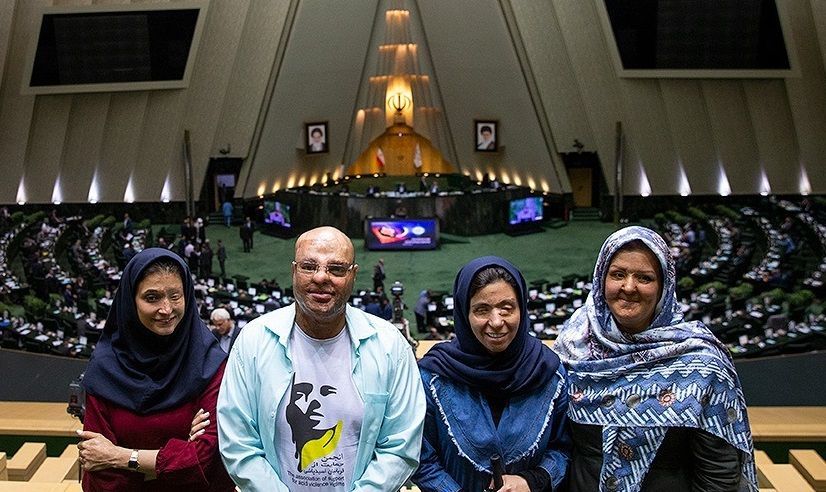Islam and the West: Part 2 – Sharia and the Challenge to Western Law
How political Islam seeks to impose Sharia wherever it settles

Islam as More Than a Religion
Unlike Christianity or Judaism, which in modern America function primarily as faith traditions, Islam is not confined to worship or spirituality. It is also a political system, a cultural identity, and a legal framework—Sharia law—that seeks to govern every aspect of life, from family relations to business contracts, from criminal punishments to international policy. That makes Islam unique: it is not only a personal faith, but also a worldview that has historically demanded expansion and dominance.
When immigration brings adherents of this worldview into the United States, we are not only importing religious diversity; we are importing a comprehensive system that often clashes with constitutional principles, individual liberty, and Western values. Pretending otherwise risks ignoring the ideological conflict embedded in the doctrine itself.
(This is Part 2 of my series on Islam’s political and cultural impact. You can read Part 1 here: https://www.alanmarley.com/islam-and-its-distinctive-political-religious-objective
Limiting Immigration From Islamic Countries
It is not "anti-immigrant" to recognize that mass, unchecked immigration from Islamic-majority countries presents risks to national cohesion. The U.S. has struggled with assimilation challenges in communities where Islamic identity is tied to rejection of Western culture. Before opening the door further, it makes sense to pause and evaluate.
Other nations have already learned this lesson. Europe, for example, has faced waves of Islamic immigration that have brought not only labor but also cultural tension, the spread of extremist ideologies, and entire districts where integration has failed. America should not repeat these mistakes. Limiting legal immigration from Islamic countries until assimilation is proven to work is not xenophobia—it is prudence.
Forbidding Sharia Law
One of the clearest conflicts between Islam and American values is the attempt, sometimes subtle and sometimes overt, to establish Sharia law in parallel to U.S. law. Sharia, at its core, includes elements such as unequal treatment of women, punishment of apostasy, and restrictions on free speech—principles utterly incompatible with the Constitution.
We cannot allow a dual legal system to take root in America. The Constitution is the law of the land. Forbidding Sharia law is not an attack on Islam as a faith; it is a defense of the rights and freedoms that define this country.
Preventing Islamic Enclaves and Parallel Communities
When immigrant groups isolate themselves into communities that reject assimilation, the result is parallel societies—communities that follow their own cultural and religious rules instead of embracing the host country’s norms. In parts of Europe, these areas are often referred to as “no-go zones,” where local governments have little influence and Islamic norms dominate.
America must not allow that development here. The nation thrives when immigrants blend into a shared American identity—not when they wall themselves off into separate societies. Cultural unity requires participation in one civic culture, one language, and one set of laws.
Deporting Those Who Resist Assimilation
Immigration is not a right; it is a privilege extended by the United States. With that privilege comes an obligation: to assimilate, to learn the language, to respect the law, and to embrace the civic values of the nation that welcomed you.
If an immigrant openly resists assimilation—refusing to integrate into society, promoting hostile ideologies, or advocating the supremacy of Sharia law over the Constitution—then deportation should be on the table. The United States is under no obligation to keep individuals who reject its core values.
Why This Matters
The debate about Islam is not just about religion. It is about whether America retains its cultural integrity and civic unity in the face of an ideology that does not separate mosque from state. We must be cautious, clear-eyed, and unapologetic in protecting American freedoms.
Being wary of Islam is not hatred—it is recognition of what history and doctrine teach us. Until assimilation is proven, until loyalty to the Constitution is paramount, America must place national survival above political correctness.
References
The Guardian. (2017, March 1). Inside Britain’s Sharia councils: Hardline and anti-women. The Guardian. https://www.theguardian.com
UK Parliament Committees. (n.d.). Parliamentary evidence on pressure within Sharia councils in the UK. UK Parliament. https://committees.parliament.uk
Selby, J. (2019, March 27). How can UK law help Islamic Sharia councils promote gender equality? EachOther. https://eachother.org.uk
Lukács, S. (2023, February 20). British Sharia councils & women. Juicy Ecumenism. https://juicyecumenism.com
The Times. (2024, December 18). How the UK became ‘Western capital’ for Sharia courts. The Times. https://www.thetimes.co.uk
The Times. (2025). High Court fatwa ruling raises alarm over Sharia courts in UK. The Times. https://www.thetimes.co.uk
The Australian. (2024, July 23). False gods: Preaching against our democracy. The Australian. https://www.theaustralian.com.au
Wikipedia contributors. (n.d.). Hizb ut-Tahrir (Australia). In Wikipedia. Retrieved August 17, 2025, from https://en.wikipedia.org/wiki/Hizb_ut-Tahrir
Counter Extremism Project. (n.d.). Hizb ut-Tahrir (Australia) profile. Counter Extremism Project. https://www.counterextremism.com
Disclaimer:
The views expressed in this post are opinions of the author for educational and commentary purposes only. They are not statements of fact about any individual or organization, and should not be construed as legal, medical, or financial advice. References to public figures and institutions are based on publicly available sources cited in the article. Any resemblance beyond these references is coincidental.











